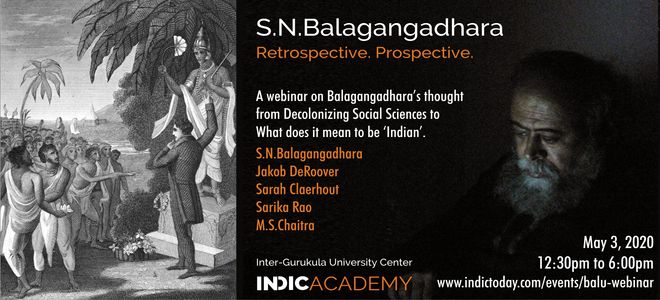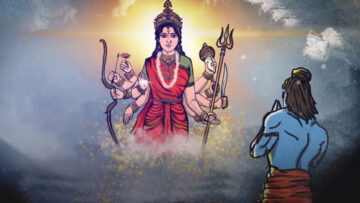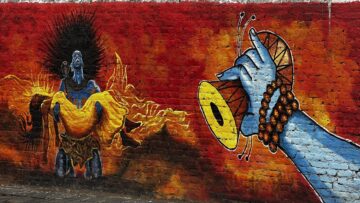ABOUT S.N. BALAGANGADHARA
Prof. S.N.Balagangadhara (Balu) is the one of the most prominent thinkers in the world today whose explorations into understanding the West have started to radically alter how Indians describe their being-in-the-world, and their past. Balagangadhara’s thought, one could also claim, has now made it difficult for the West to continue with its propensity to universalize, or claim as facts, its experience of other cultures from its own historically and theologically rooted contexts.
While post-colonial scholarship after Edward Said’s Orientalism (1978) just degenerated into meaningless jargon producing no new knowledge, Balagangadhara’s explorations for more than four decades have not only postulated the concept of colonial consciousness, but have also started making in-roads into uncovering it, and finding means of grasping and describing Indian civilizational contributions to the world using terminology and methods which make cross-cultural understanding possible.
Today various research groups in India and Europe carry on the research program of decolonizing social sciences that Prof. Balu launched, working in various fields of social sciences — translation studies, literary studies, sociology of caste, Sanskrit studies, ethics, law, political science, etc.
FORMAT OF THE UNIQUE WEBINAR
Indic Academy brings you a very rare event this Sunday, May 3rd — we present a panel of four scholars from the Ghent School of Thought, in addition to Prof. S.N.Balagangadhara himself, in a webinar which presents an exploration into Prof. Balu’s thought and his research program.
Reading material comprising of extracts from three books authored by Prof. Balu is sent to all who register for the webinar. We expect all to read the material carefully, reflect on the ideas in the material, and send us questions for discussion during the Webinar before end of the day on Friday May 1st. All such questions received will be collated, categorized and distributed for discussion in three sessions of 90mins each. There are no separate lectures (other than an introductory lecture by Prof. Balu), but only discussions on questions sent.
Panel:
Prof. S.N.Balagangadhara
Dr. Jakob DeRoover
Dr. Sarah Claerhout
Dr. Sarika Rao
Dr. M.S.Chaitra
Webinar date: May 3rd, 2020
Time and duration: A total of 5 1/2 hours, from 12:30pm to 6:00pm (IST)
Sessions: Three sessions of 90 mins each with 15mins breaks in between
Session One: 12:30pm to 2:00pm (IST)
Break one: 15 mins
Session Two: 2:15pm to 3:45pm (IST)
Break two: 15 mins
Session Three: 4:00pm to 5:30pm (IST)
Additional Q&A Session and closing: 5:30pm to 6:00pm
Reading material (extracts from books by Prof. S.N.Balagangadhara):
Excerpt from the book “We Shall Not Cease From Exploration…” (1985)
Excerpt from the book “Reconceptualizing India Studies” (2012)
Intro and 4 chapters from the book “What Does It mean to be ‘Indian’?” (Upcoming)
Registration Process
The webinar is open to all and is free of charge. Please click on this link to open the registration form to register. Once you submit the form, you will receive an email with a link to download the reading material. Finish reading the material, reflect on the contents, and send us your questions for discussion.
Registration Link: https://indicacademy.zoom.us/webinar/register/WN_YWUnNf-MRtyyn3wx7ZxBzg
If you have any questions about the process or face problems with registration, please write to srinivas.udumudi@indicacademy.org
Notes
Picture credit: Portrait of Prof. Balagangadhara by Dr. Dunkin Jalki from Centre for Interdisciplinary Research in Humanities and Social Sciences (CIRHS), Ujire, Karnataka
Art work: Line engraving from 1832 titled “Missionary in India, 1832: The Rev. J. Thomas Putting To Shame The Bramins & Exciting The Ridicule Of The People At Idol Worship.“
Disclaimer: The opinions expressed in this article belong to the author. Indic Today is neither responsible nor liable for the accuracy, completeness, suitability, or validity of any information in the article.





